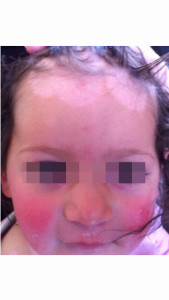Uncategorized
A short guide on Psoriasis Skin Condition
Overview
Psoriasis is a chronic, incurable skin disorder which is non-contagious in nature. The most common form of psoriasis is plaque psoriasis, and the person affected has red plaques on the skin which itches or may even provide a burning sensation. The body areas which are mostly affected includes elbows, knees, trunk, legs, arms and head scalp. The skin cells grow at a lot faster rate in patients suffering from psoriasis skin condition. Therefore, a patient having psoriasis will have new skin cells once every few days instead of few weeks, as observed in normal people. This rapid growth of new skin cells leads to the accumulation of old dead cells on the skins which are the causes of the formation of plaques and other red patches which itch and has a burning sensation.
Causes
The exact causes of psoriasis are still unknown to scientists. However, most of the doctors believe that the immune system along with genes might be responsible for psoriasis in many people across the world. The white blood cells act as a shield; preventing our body from any bacterial or pathogenic attack. However, in patients suffering from psoriasis skin condition, the T cells (a type of white blood cells) take the healthy skin cells to be dangerous and attacks it. This triggers the formation of new skin cells while the old dead cells pile up on the skin; causing the formation of red patches and plaques that are characteristic of psoriasis.
Treatment

The treatment of psoriasis skin condition depends on some factors such as the severity of skin condition, type of psoriasis, location of psoriasis, body parts involved in psoriasis to name a few. Apart from these, another major determinant of treatment type is how the patient responds to the initial periods of treatment.
Based on these, the treatment type is classified into three broad categories which include-
- Tropical Treatment- In this type of treatment, certain herbal and other medicines are applied to the affected areas of the patient’s skin. For instance, certain ointment or cream form of compound corticosteroids, antrallin, coal tar, vitamin D3 and retinoid have a positive impact on the patient’s condition.
- Phototherapy- Also known as light therapy, this form of treatment is subjected to the patient by bringing his skin in controlled contact with natural UV rays coming from the sun as well as artificial UV rays (Ultraviolet B rays) to treat the patient. Some patients have been reported to have responded pretty well to this treatment style. This treatment style also includes usage of Ultraviolet B phototherapy and Psoralen and Ultraviolet A Phototherapy (PUVA) to treat patients suffering from psoriasis skin condition. Systematic Treatment- As the name suggests, systematic treatment involves taking medicines in the form of pills or through injection. Some of the most used medical compounds used for treatment include methotrexate, cyclosporine, retinoid and biological response modifiers. The biological response modifiers aim at treating the hypersensitivity of the immune system which is said to be the main cause of psoriasis.
- Combination therapy- The last treatment type recommended for psoriasis is combination therapy which combines all the therapies mentioned above to bring one, planned therapy which seeks to treat psoriasis.
Psoriasis is a skin condition which is still incurable; though doctors have found a way to keep the skin condition under control. To know more about psoriasis and to get a personalised advice, do get in touch with our specialists at HP Dermatology Centre today.


